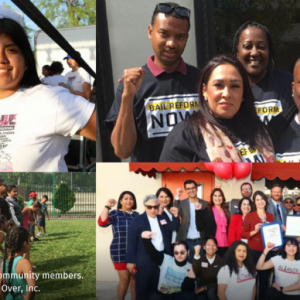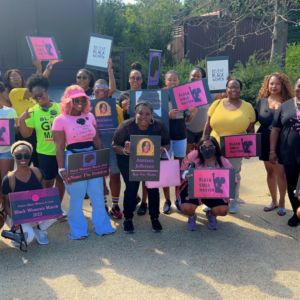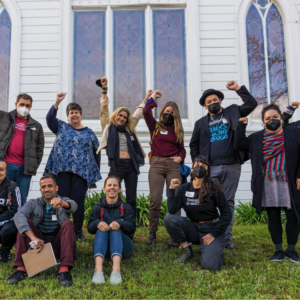A Fund that Creates Community Agency and Ownership of Housing

California’s longstanding housing crisis requires new and innovative solutions that low-income communities of color need to access affordable housing for the long term. For years, housing justice advocates across the state have been calling on philanthropy to provide the resources necessary to effectively address the issue. In response, Common Counsel Foundation’s Community Ownership for Community Power (COCP) fund was launched to provide pooled grantmaking and create a community-governed $100M integrated capital fund as a two-pronged approach to support community ownership organizations’ abilities to acquire, govern, and sustain community-owned land and housing at scale across California. COCP aims to dismantle structural barriers that have historically excluded communities of color from housing security and wealth-building opportunities. Since 2022, we have deployed $6.6M to 30 organizations across the state advancing community ownership.
California’s Housing Affordability Crisis
Across the state, the lack of affordable housing and an accessible pathway to home ownership are displacing communities of color, disrupting generational wealth-building pathways, and creating disruptive health and environmental impacts on people and entire regions.
California is facing a severe housing shortage, and the financial collapse of 2008 also exacerbated housing affordability for Californians. The 2022 US census reports that 5.5 million California households (42%) are cost-burdened, meaning that they spend more than 30% of their incomes on housing. Only 18% of Californians can even afford the median priced home in the state. Meanwhile, more than half of California renters are rent burdened, which means that more than 30% of their income goes toward rent, according to the Harvard Joint Center for Housing Studies. And nearly a third of Californians are severely rent-burdened, which means that rent drains more than half of their income.
In the wave of foreclosures during the Great Recession, Black and Latine households were hit the hardest. By all measures, Black and Latine communities are disproportionately affected. For example, according to the National Association Realtors, Black (21%) and Hispanic (17%) applicants face significantly higher mortgage denial rates compared to white (11%) and Asian (9%) applicants. Latines also face unique obstacles in the underwriting and home search processes, with most denials being attributed to debt-to-income ratios or credit scores. This is in addition to their higher likelihood of being unbanked and having little or no credit or financial history.
An Alternative Solution to Traditional Housing
One approach to reversing this trend is gaining ground in California: community ownership. Various models of community ownership are used as methods of removing land and/or housing from exploitation by market forces and putting them into the hands of community members to collectively own or steward. They are often led by and rooted in communities of color and aim to achieve permanently affordable housing, wealth-building, as well as community empowerment.
Community land trusts (CLTs) are one common model in California, where according to the California Community Land Trust Network, the number of community land trusts in California has tripled to over 40 organizations since 2014. However, others such as resident-owned manufactured housing communities, cooperatives, shared equity arrangements, and mixed-income neighborhood trusts are also practiced and continue to emerge across the state.
“Community ownership organizations need support with sustained investments from philanthropy. When philanthropy partners with community groups to lead the way and move resources at a larger scale, it moves the priorities in the right direction and allows us to do much more.” — Saki Bailey, Executive Director of San Francisco Community Land Trust
The Creation of the Community Ownership for Community Power Fund
In 2019, five CLTs that received long-term funding from The California Endowment (TCE) began working together to showcase the model as a solution to the housing affordability crisis and expand the footprint of this work across the state. However, in their 2020 report on the effectiveness of community land trusts, they highlighted that access to capital remained a significant challenge. Many CLTs can’t meet the narrow requirement for government funds and lack the high return on investment required for conventional development and lending.
They used this report to advocate for TCE to work collaboratively with community ownership partners and funders, like The James Irvine Foundation and Chan Zuckerberg Initiative, resulting in a comprehensive concept paper for a pooled grant fund. This document also outlined a co-design process to create a new integrated capital fund that actively involved community ownership groups, fund managers, and committed funders. The vision is to make community ownership a common model for housing preservation and production across California—to “help lead a growing movement focused on the intersection of resident empowerment and leadership, community control of land and housing, and place-based democratic governance.”
Because of CCF’s extensive and trusted experience working with organizations rooted in communities of color, CCF was selected to manage the fund. In 2022, the Community Ownership for Community Power Fund (COCP) officially launched, and it has since disbursed $5.6 million in multi-year core support grants to 14 community organizations guiding the development and design of an Integrated Capital Fund. They lead on designing many of the priorities, decision-making processes, co-governance structure, and other key elements of the upcoming integrated capital fund. By 2024, an additional $1 million in grants was allocated to support the emerging ecosystem of community ownership organizations in the San Joaquin Valley.
COCP grants have supported organizations that owned or stewarded over 735 units of affordable or permanently affordable housing, secured land for community gardens, and supported capacity building programs for emerging community leaders. These achievements demonstrate the transformative potential when community-led organizations have access to sustained funding.
Saki Bailey, Executive Director of San Francisco Community Land Trust, echoed, “Community ownership organizations need support with sustained investments from philanthropy. When philanthropy partners with community groups to lead the way and move resources at a larger scale, it moves the priorities in the right direction and allows us to do much more.”
COCP is also finalizing the creation of the Integrated Capital Fund (ICF). Resources deployed from the ICF will help community ownership organizations remove land from the speculative market and foster permanent affordable housing. Once launched, it will also help support the long-term sustainability of community ownership organizations, particularly those led by people of color. The ICF breaks away from traditional philanthropic investment models that often impose rigid restrictions, and instead it blends a mix of capital to provide flexible resources tailored to the specific goals of grassroots movements. This approach not only meets immediate needs but also allows communities to build long-term economic resilience and self-determination.
The vision is to make community ownership a common model for housing preservation and production across California—to “help lead a growing movement focused on the intersection of resident empowerment and leadership, community control of land and housing, and place-based democratic governance.”
Elevating Grassroots Leadership Through Innovative Funding Model
CCF is creating a new funding model that shifts power to grassroots leaders, fosters innovative funding mechanisms, and champions affordable housing as a cornerstone of social justice. At the heart of CCF’s mission is the belief that communities most affected by social injustices should lead decision-making processes.
This philosophy is embedded in CCF’s long-standing power-building strategy, which seeks to redistribute power from traditional philanthropic entities to grassroots organizations and community leaders. COCP offers a model for building an equitable, inclusive, and just future where all communities have the power to shape their own destinies.
Philanthropic partners play a critical role in advancing community ownership. To learn more about COCP and ways to support these efforts, please reach out to Emily Duma at [email protected].




